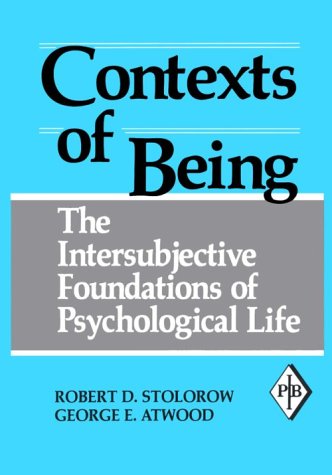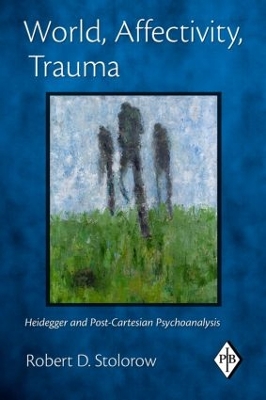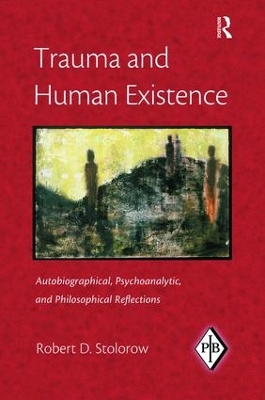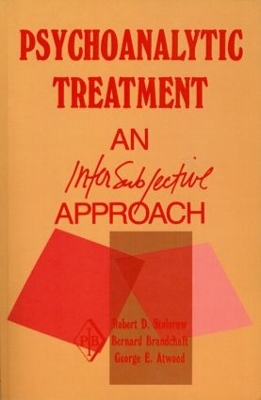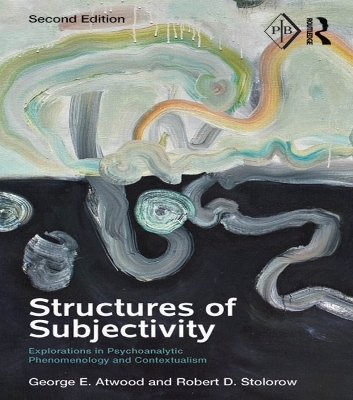Psychoanalytic Inquiry Book
6 total works
Beginning with an in-depth critique of the concept of the isolated individual mind, Stolorow and Atwood argue that this myth has long obstructed recognition of the intersubjective foundations of psychological life. The authors then proceed to a series of chapters that reframe, from the standpoint of intersubjectivity theory, basic assumptions of the psychoanalytic theory of mental life. Concluding chapters on "varieties of therapeutic alliance" and "varieties of therapeutic impasse" further exemplify the ability of intersubjectivity theory to reorient the psychoanalytic therapist, thus providing fresh strategies for understanding and addressing the most challenging clinical contingencies.
Contexts of Being is the conceptual culmination of Stolorow and Atwood's earlier studies, giving them a forum to explain why the perspective of intersubjectivity cannot be reduced to a clinical sensibility that can be grafted onto existing psychoanalytic theory. Rather, the authors argue, the intersubjective perspective has methodological and epistemological implications that mandate a radical revision of all aspects of psychoanalytic thought. Not only a cogent elaboration of these implications, the volume is also an important first step in effecting the sweeping revision that follows from them.
Stolorow and his collaborators' post-Cartesian psychoanalytic perspective – intersubjective-systems theory – is a phenomenological contextualism that illuminates worlds of emotional experience as they take form within relational contexts. After outlining the evolution and basic ideas of this framework, Stolorow shows both how post-Cartesian psychoanalysis finds enrichment and philosophical support in Heidegger's analysis of human existence, and how Heidegger's existential philosophy, in turn, can be enriched and expanded by an encounter with post-Cartesian psychoanalysis. In doing so, he creates an important psychological bridge between post-Cartesian psychoanalysis and existential philosophy in the phenomenology of emotional trauma.
Trauma and Human Existence effectively interweaves two themes central to emotional trauma - the first pertains to the contextuality of emotional life in general, and of the experience of emotional trauma in particular, and the second pertains to the recognition that the possibility of emotional trauma is built into the basic constitution of human existence.
This volume traces how both themes interconnect, largely as they crystallize in the author‘s personal experience of traumatic loss. As discussed in the book's final chapter, whether or not this constitutive possibility will be brought lastingly into the foreground of our experiential world depends on the relational contexts in which we live.
Taken as a whole, Trauma and Human Existence exhibits the unity of the deeply personal, the theoretical, and the philosophical in the understanding of emotional trauma and the place it occupies in human existence.
Psychoanalytic Treatment
by Robert D. Stolorow, Bernard Brandchaft, and George E. Atwood
Psychoanalytic Treatment: An Intersubjective Approach fleshes out the implications for psychoanalytic understanding and treatment of adopting a consistently intersubjective perspective. In the course of the study, the intersubjective viewpoint is demonstrated to illuminate a wide array of clinical phenomena, including transference and resistance, conflict formation, therapeutic action, affective and self development, and borderline and psychotic states. As a consequence, the authors demonstrate that an intersubjective approach greatly facilitates empathic access to the patient's subjective world and, in the same measure, greatly enhances the scope and therapeutic effectiveness of psychoanalysis. Psychoanalytic Treatment is another step in the ongoing development of intersubjectivity theory, as born out in Structures of Subjectivity (1984), Contexts of Being (1992), and Working Intersubjectively (1997), all published by the Analytic Press
Toward an Emancipatory Psychoanalysis
by Bernard Brandchaft, Shelley Doctors, and Dorienne Sorter
Structures of Subjectivity: Explorations in Psychoanalytic Phenomenology and Contextualism, is a revised and expanded second edition of a work first published in 1984, which was the first systematic presentation of the intersubjective viewpoint – what George Atwood and Robert Stolorow called psychoanalytic phenomenology – in psychoanalysis. This edition contains new chapters tracing the further development of their thinking over the ensuing decades and explores the personal origins of their most essential ideas.
In this new edition, Atwood and Stolorow cover the philosophical and theoretical assumptions of psychoanalysis and present a broad approach that they have designated phenomenological contextualism. This approach addresses personal subjective worlds in all their richness and idiosyncrasy and focuses on their relational contexts of origin and therapeutic transformation.
Structures of Subjectivity covers the principles guiding the practice of psychoanalytic therapy from the authors' viewpoints and includes numerous detailed clinical case studies. The book will be essential reading for psychoanalysts, practitioners of psychotherapy, psychiatrists, psychologists, counselors, and social workers. It will also be of interest to scholars and students with an interest in psychoanalytic theory and practice, and its philosophical premises.
